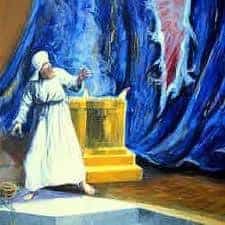 “What would Jesus do in the voting booth?”
“What would Jesus do in the voting booth?”
A well-intended adult Sunday School teacher said that years ago, his final summary point intended to drive home the biblical mandate to vote Republican. My friend leaned over and quipped, “He’d probably rend the curtain.” (This is an allusion to the Gospel story where the curtain of the Jewish Temple was rent in two at Jesus’ crucifixion, thus signifying the end of the Jewish sacrificial system. I think this was the last time I got in trouble for giggling in church.)
Anyway: Bad question. Good answer.
I am not going to vote–not that you asked (but it’s my blog). Despite how the candidates are demonized as hybrids of Gordon Gekko and Stalin, I’m sure they’re both decent people I could have a beer with. But, once again, our system has given us two–and only two–candidates, neither of whom can grab my attention for more than a few seconds at a time before I flip to The Big Bang Theory. (Oh Sheldon, you’re so delightfully socially inept in your brilliance.)
Forgive the sweeping generalization (an occupational hazard of a cynic), but I believe both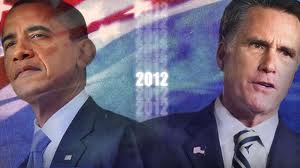 candidates are saying what they need to say, doing what they need to do, simply to get elected.
candidates are saying what they need to say, doing what they need to do, simply to get elected.
It’s not just that I don’t trust them. I’m bored with them.
Here’s my problem. I am teaching a course this semester at Eastern University on the Old Testament prophets. I wanted to give my undergraduate students a feel for the gutsy, countercultural, imaginary vision of an Isaiah, Jeremiah, and Ezekiel. I tried to think of a contemporary voice they could relate to–a politician, singer, religious figure, somebody. Nothing came up.
So, I went to the old stand-by, Martin Luther King, Jr. I guess he’ll do.
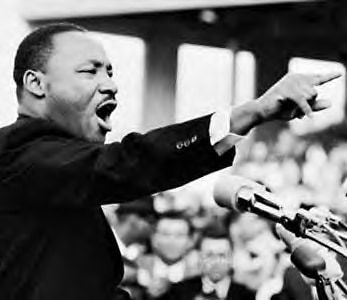 I watched on YouTube his “I Have a Dream” and “I”ve Been to the Mountaintop” speeches, but now I heard them differently than I had in the past. I never really paid that close attention–these speeches were always more background cultural noise from my childhood. But now I was listening to see if this could work in my class, and so I had to listen closely.
I watched on YouTube his “I Have a Dream” and “I”ve Been to the Mountaintop” speeches, but now I heard them differently than I had in the past. I never really paid that close attention–these speeches were always more background cultural noise from my childhood. But now I was listening to see if this could work in my class, and so I had to listen closely.
I felt held in a tractor beam. I watched again and again.
I was struck this way because for the previous few months I had read through all the prophetic books of the Old Testament and a lot of books on the prophets. One of the books I wound up assigning is Walter Brueggemann’s short but classic The Prophetic Imagination.
Brueggemann says the prophetic task is to offer a “imagination”–a way of looking at the world–that challenges boldly and fearlessly the world offered to us by the dominant culture.
Prophets are countercultural voices that do much more than simply address specific “issues” that arise, such as what we hear in the current (and all) presidential campaigns: “We need oil, jobs, a stable economy, safer streets, and I am the one to give that to you.”
A prophet sees beyond the rhetoric of change and takes aim at the myth of the dominant culture by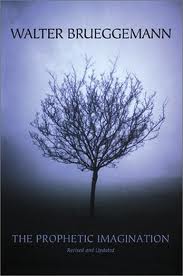 voicing an alternate consciousness, one that delegitimizes the empire by exposing its enforced maintenance of an unspoken status quo.
voicing an alternate consciousness, one that delegitimizes the empire by exposing its enforced maintenance of an unspoken status quo.
A prophetic voice is not trite and boring but embarrassing and annoying to those in power, because it demands the appearance of an unprecedented social reality that neuters the static triumphalism of politics-as-usual. It is impatient with worn phrases and visionless rhetoric.
Politicians offer bandaids. Prophets call for an organ transplant.
So, with all this floating around in my mind, I listened to King’s speeches more closely. I began to see that what made him so compelling and dangerous is that his style mirrored that of the biblical prophets (which is likely not intentional, but a reflection of the rich history of black preaching that was immersed in biblical imagery.)
King’s words were lyrical and his voice melodic. Likewise, the biblical prophets uttered their charges against the dominant culture through poetic verse, which is more evoking of emotion than narrative. King offered both strong critique of the status quo and a longing vision for a better future. And he did it with with absolute power of conviction and a clear voice that simply makes you stop in your tracks and listen–and watch for what will happen next.
And, as with the prophets, few observers are neutral. You are either drawn to King’s vision of delegitimizing the empire and offering a new social vision, or you are annoyed and angered at his arrogance for speaking against the powerful and not letting things be. As with Jeremiah in the Old Testament, you either want to be a part of the world he envisions or get rid of him.
So, as I listened to these speeches of King, something happened to me that rarely does: I was moved by words coming out of the mouth of a public figure. King voiced an alternate America, and I found myself wanting what he was talking about. King is in a league by himself. Certainly in my lifetime, there has been no more powerful, compelling, moving, energizing voice of change.
Which brings me back to next week’s election. I do not mean to comment on their personal characters, but as candidates, they are their running mates are boring, pandering, gutless, and visionless by comparison to King. Their goal is to get elected, and I do not trust what they say.
When I listen to them I feel manipulated. When I listen to King, I feel convicted and inspired. And King was so captured by his alternate reality that he was willing to risk his life for it. I am not sure how many leaders of my generation that I can describe this way.
Certainly not presidential candidates, past or present.
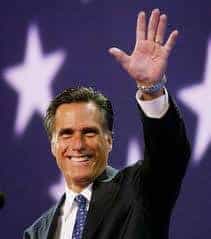 So, I’m cynical and I don’t want to cast a vote for the status quo, for bandaids over surgery.
So, I’m cynical and I don’t want to cast a vote for the status quo, for bandaids over surgery.
Show me a humble, exciting, powerful, courageous, uncompromising, visionary candidate, with a gift for speaking eloquently (or just with good sentence structure) who inspires people, one we are compelled to follow, not someone we flip channels past.
There has to be someone like that out there, someone who is not so beholden to the system that they can’t critique it.
I want someone who is going to stop this slow, tedious, political merry-go-round and give me something to cheer about–not because we agree on “the issues” but because he or she embodies courage and conviction, so much so that getting elected and creating a personal legacy is a distant and repulsive thought.
something to cheer about–not because we agree on “the issues” but because he or she embodies courage and conviction, so much so that getting elected and creating a personal legacy is a distant and repulsive thought.
Maybe watching King on YouTube was a bad idea. Maybe I am spoiled, or burdened by “unrealistic” expectations. That may be true, but perhaps that’s only because our definition of what is and isn’t “realistic”–our definition of “reality”–is part of the problem. We are all captured by the dominant culture. It’s all we know.
I’m not looking for heaven on earth. But I do want a candidate who will blow me away. Maybe that’s asking too much. But by not voting, I am casting my vote for a candidate to be named later and an alternative reality that requires true prophetic imagination to voice. Maybe one day.
